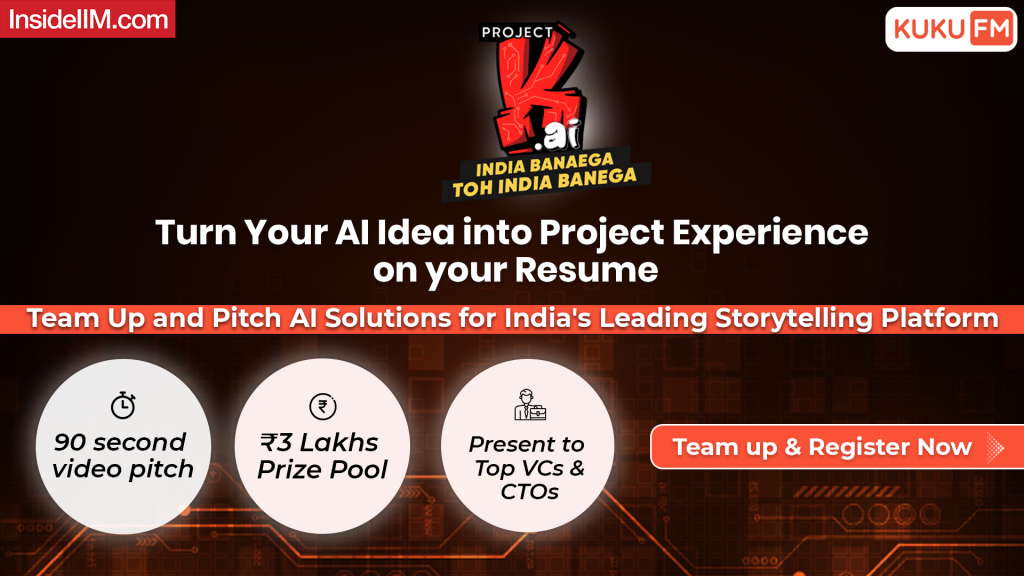We are living in the Information Age – sharing all kinds of information through computers, mobile phones, etc. Information flows to us and the world in many ways – through newspapers (such as Times of India, Hindustan Times etc.), research/consulting firms (such as Nielsen, Bain Consulting etc.), magazines (such as Outlook India, India Today etc), business publications (such as Construction World, India Business Journal etc.), news websites (such as Bloomberg.com, Reuters etc.), and now social media (Facebook, Twitter etc.). The latter is what is the most concerning.  The current information, or rather misinformation, situation has come to a point where we need to be informed about the information that comes to us. As we form part of progressive India, we need to be informed because there could be serious implications on organisations as well. To better explain, let me introduce you to some facts below:
The current information, or rather misinformation, situation has come to a point where we need to be informed about the information that comes to us. As we form part of progressive India, we need to be informed because there could be serious implications on organisations as well. To better explain, let me introduce you to some facts below:
- Dipa Karmakar won the gold medal in Rio
- PM Narendra Modi has been officially voted by the UNESCO as the best Prime Minister in the last one year
- Meanwhile, Amazon chief Jeff Bezos recently said that – “the US President couldn’t take any action against me, so what can angry Indians achieve?” The quote came after Amazon faced the music due to the online store selling Indian flag doormats.
What’s interesting about these “facts” is that they are not as true as you may see it. One of them is out of context. One is fake. And one is probably an allegation.  It is challenging to comprehend the damage one fake piece of information can do and how grim the situation is for businesses. The internet has greatly benefited those seeking information. The ‘access to knowledge’ barrier seems to have been broken down by the internet.
However, the question that needs to be asked now is related to ‘access to “correct” information’. Everyone with internet now has the power to create or manipulate information. And this is now affecting public figures and businesses.
Just to explain how reliable or helpful information from the internet is, the following metaphor can be used. Information found on the internet is as reliable as information received from your classmate. No offence to students, but the point is that classmates could (not will) be wrong.
Here’s one simple reason why – when organisations such as Bloomberg.com, Nielsen, and Hindustan Times shares information, they are very meticulous with facts as they have a reputation to keep up to. Think of these organisations as your professors. Information coming from them is mostly factual and reliable.
Now think of social media websites – a lot of content is generated by users themselves. There is no supervisor as such for many of these websites to check if the content shared is factual. They could be correct, they could be partly correct, or they could just be incorrect – just like our classmates.
How could this hurt business?
Let’s look at the information pieces I shared at the start of the article – one by one.
Consider yourself to be the marketing head of an organisation, and your social media intern informs you that Dipa Karmakar won gold in Rio. You try to tap the proud moment for India and release a statement congratulating Dipa for her victory at the Rio Olympics. You are glad that you posted the first congratulatory message. And then the embarrassment; Dipa did win gold in Rio, but that was in a competition held just before the Olympics.
I came across the news that Dipika won gold during Rio Olympics 2016, but it made me suspicious as because the final events weren’t held at that point. However, my friend who shared this information was probably unaware of this. The person just read the headlines “Dipika wins gold in Rio,” and thought that the victory came during the Rio Olympics.
Now the second news: ‘Prime Minister Narendra Modi voted by UNESCO as best Prime Minister.’ This information caught many unaware – including Pankaj Advani. The billiards champion tweeted a congratulatory message and was soon ridiculed for being fooled by fake information. The basic flaw in the original information is – there is no such thing as the Best Prime Minister Award. Political leaders usually win accolades as the Nobel Peace Prize or Time Person of the Year, etc.
It is challenging to comprehend the damage one fake piece of information can do and how grim the situation is for businesses. The internet has greatly benefited those seeking information. The ‘access to knowledge’ barrier seems to have been broken down by the internet.
However, the question that needs to be asked now is related to ‘access to “correct” information’. Everyone with internet now has the power to create or manipulate information. And this is now affecting public figures and businesses.
Just to explain how reliable or helpful information from the internet is, the following metaphor can be used. Information found on the internet is as reliable as information received from your classmate. No offence to students, but the point is that classmates could (not will) be wrong.
Here’s one simple reason why – when organisations such as Bloomberg.com, Nielsen, and Hindustan Times shares information, they are very meticulous with facts as they have a reputation to keep up to. Think of these organisations as your professors. Information coming from them is mostly factual and reliable.
Now think of social media websites – a lot of content is generated by users themselves. There is no supervisor as such for many of these websites to check if the content shared is factual. They could be correct, they could be partly correct, or they could just be incorrect – just like our classmates.
How could this hurt business?
Let’s look at the information pieces I shared at the start of the article – one by one.
Consider yourself to be the marketing head of an organisation, and your social media intern informs you that Dipa Karmakar won gold in Rio. You try to tap the proud moment for India and release a statement congratulating Dipa for her victory at the Rio Olympics. You are glad that you posted the first congratulatory message. And then the embarrassment; Dipa did win gold in Rio, but that was in a competition held just before the Olympics.
I came across the news that Dipika won gold during Rio Olympics 2016, but it made me suspicious as because the final events weren’t held at that point. However, my friend who shared this information was probably unaware of this. The person just read the headlines “Dipika wins gold in Rio,” and thought that the victory came during the Rio Olympics.
Now the second news: ‘Prime Minister Narendra Modi voted by UNESCO as best Prime Minister.’ This information caught many unaware – including Pankaj Advani. The billiards champion tweeted a congratulatory message and was soon ridiculed for being fooled by fake information. The basic flaw in the original information is – there is no such thing as the Best Prime Minister Award. Political leaders usually win accolades as the Nobel Peace Prize or Time Person of the Year, etc.
What if Pankaj Advani was a brand ambassador for your organisation?
While Advani’s statements were personal, brands do face ramifications. Snapdeal found itself in hot water after Aamir Khan’s personal views on what he thought was the situation in India. Many users gave poor ratings to Snapdeal’s app, and some uninstalled it. Some users refused to buy products from Snapdeal until Khan was removed as the brand ambassador.
Meanwhile, Advani tweeted a response accepting his folly to contain any damage to personal reputation: “I know I got my facts wrong but this apparently gets more attention than when I win a WORLD TITLE”.
Next in line: Jeff Bezos not caring about Indian sentiments. I came across a news piece hinting that Bezos does not care about hurting Indian sentiments. The news was published by a Hindi language news website called DainikBharat.org. The article quoted Amazon as saying that ‘4 crore Indians shop through our apps, and if some of them get upset, what difference would it make?’ The article also quotes Bezos as saying that ‘the US President couldn’t take any action against him, so what can angry Indians achieve?’
However, I could not find similar information anywhere else. Other news reports I found reported that Amazon apologised for its actions and the company is betting heavily on India for growth.
The problem here is the use of debatable and somewhat provocative information about Amazon, and the objective appears to be to create an anti-Amazon atmosphere. This is not good news for a business such as Amazon.
It seems that many of us interpret information based on our already held beliefs. What’s worrying is that there are now many sources of fraudulent information that feeds the bias or wrongly held notions of individuals instead of providing facts. So let’s be more valid when it comes to accessing and sharing information. The onus is on us. The consequences go beyond just business – there have been reports that fake news played a major role in the US elections.




